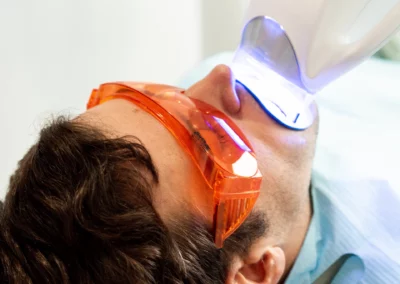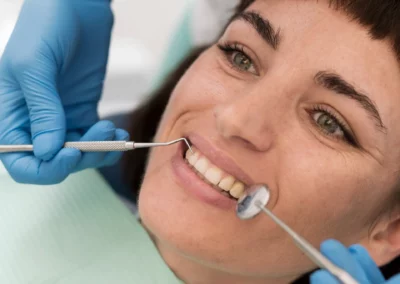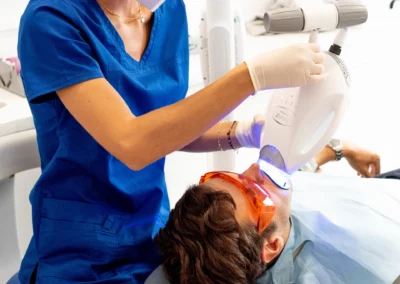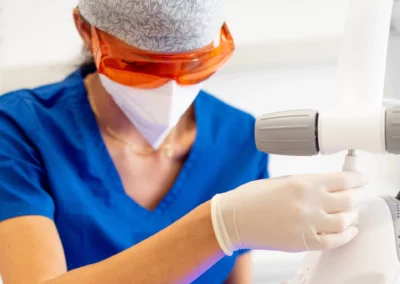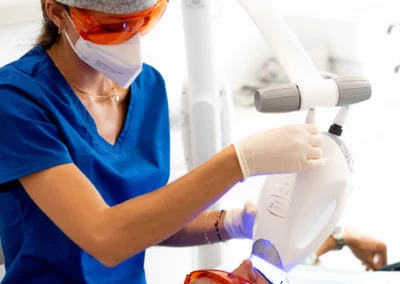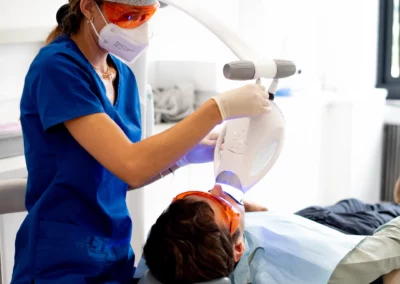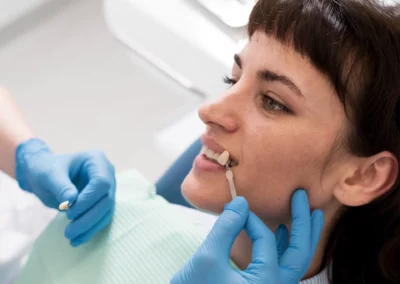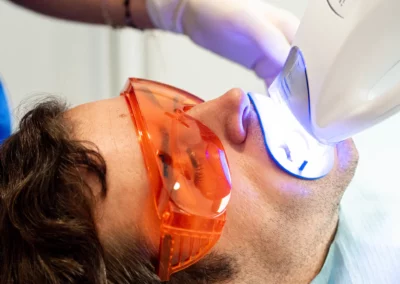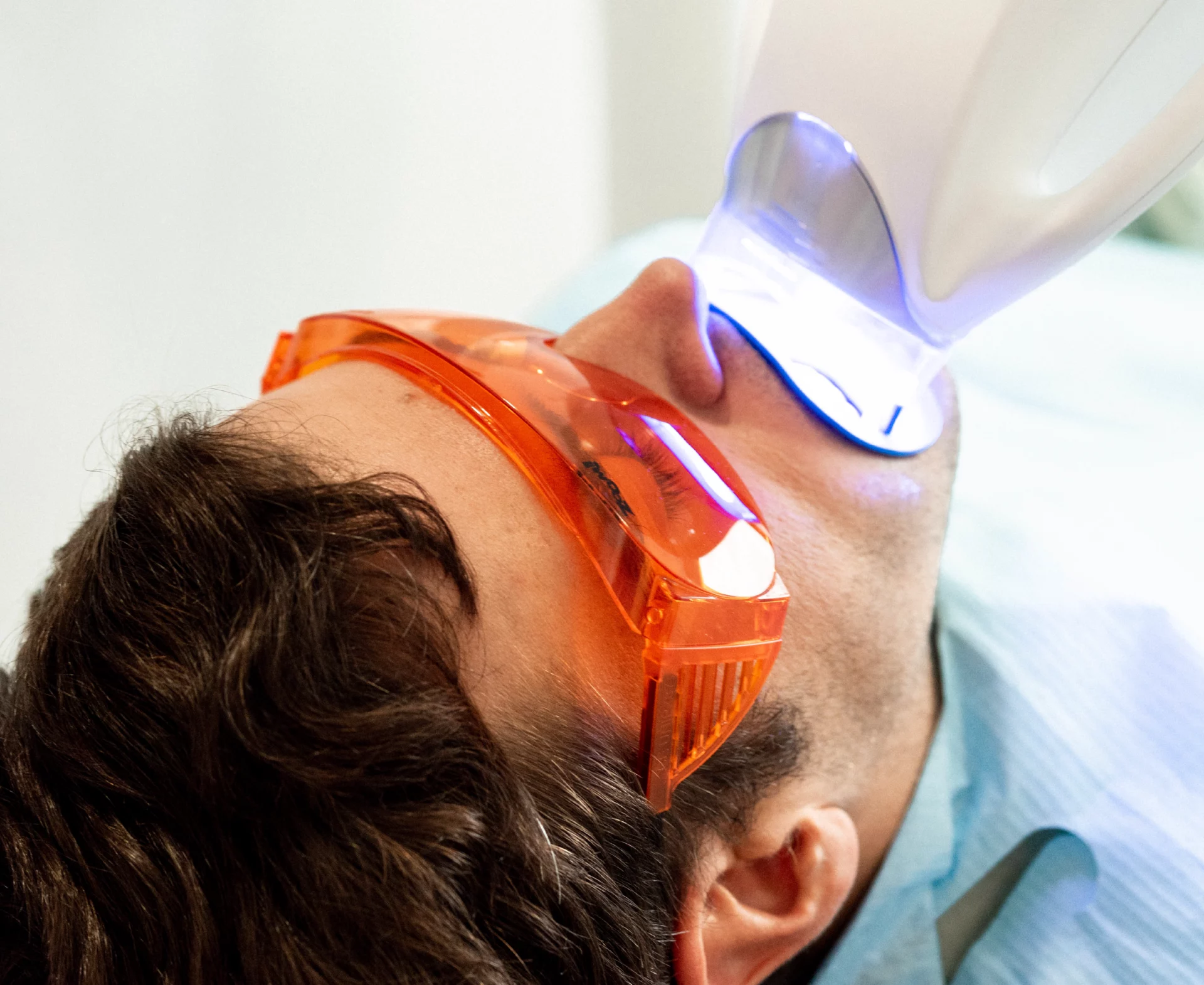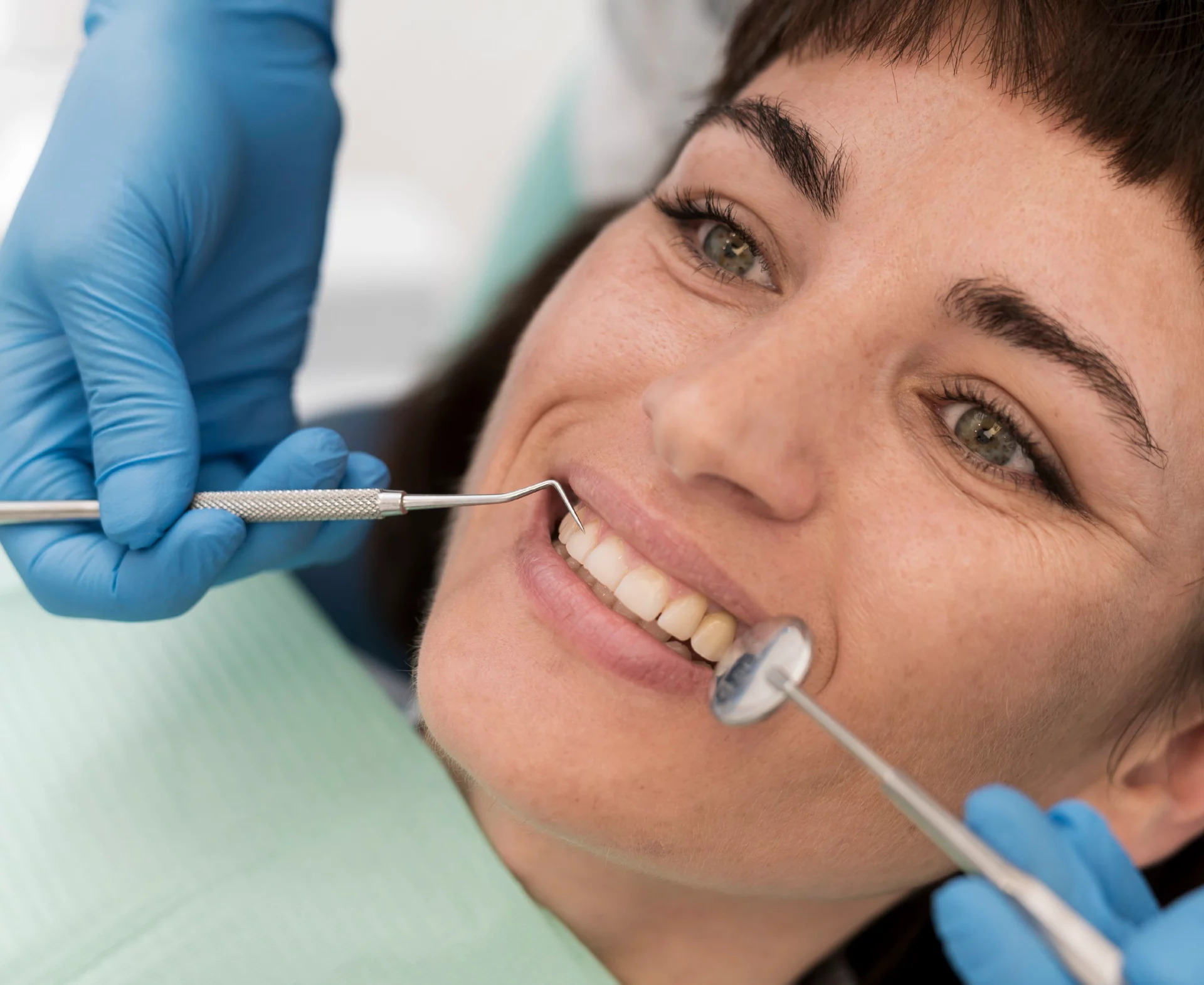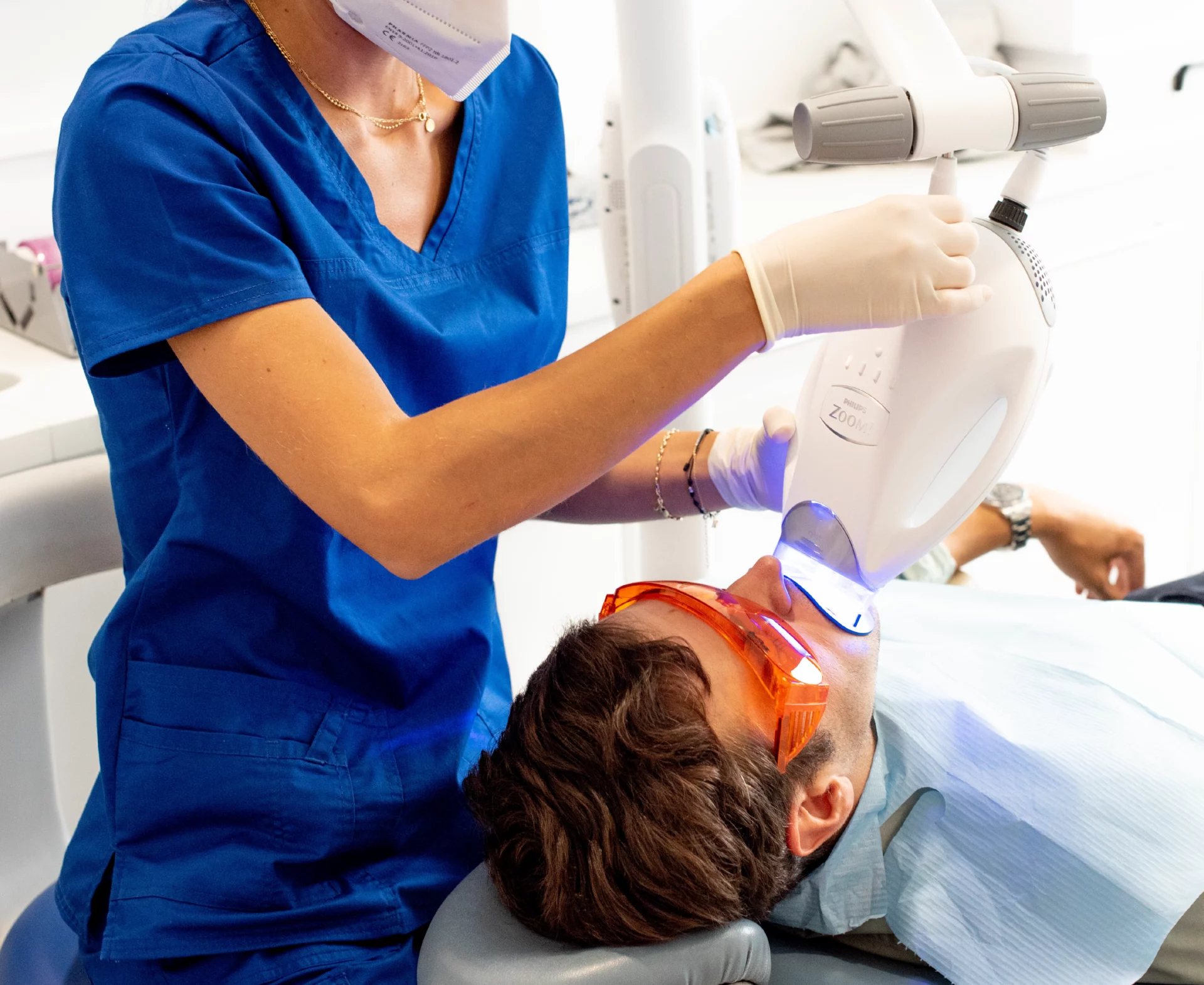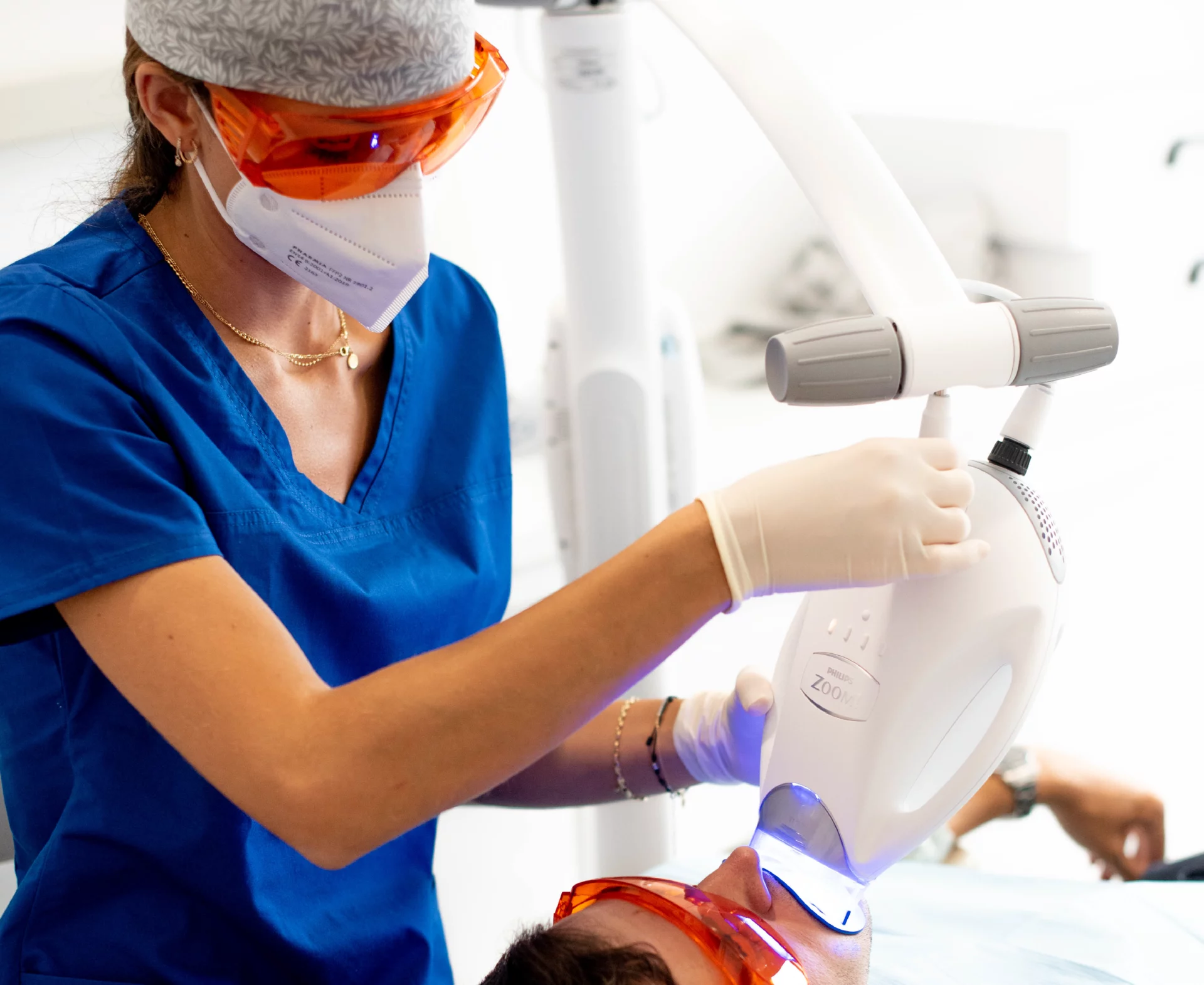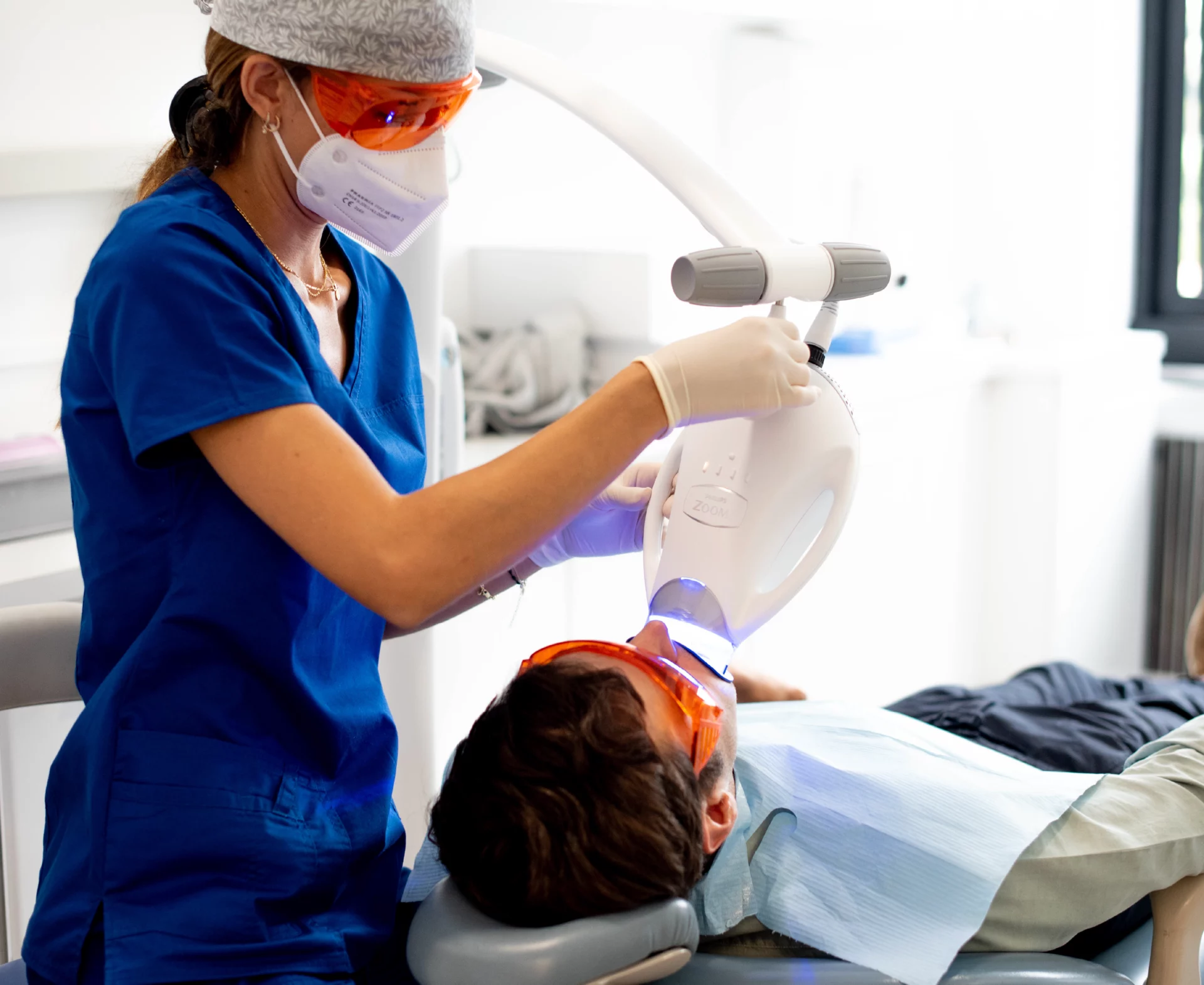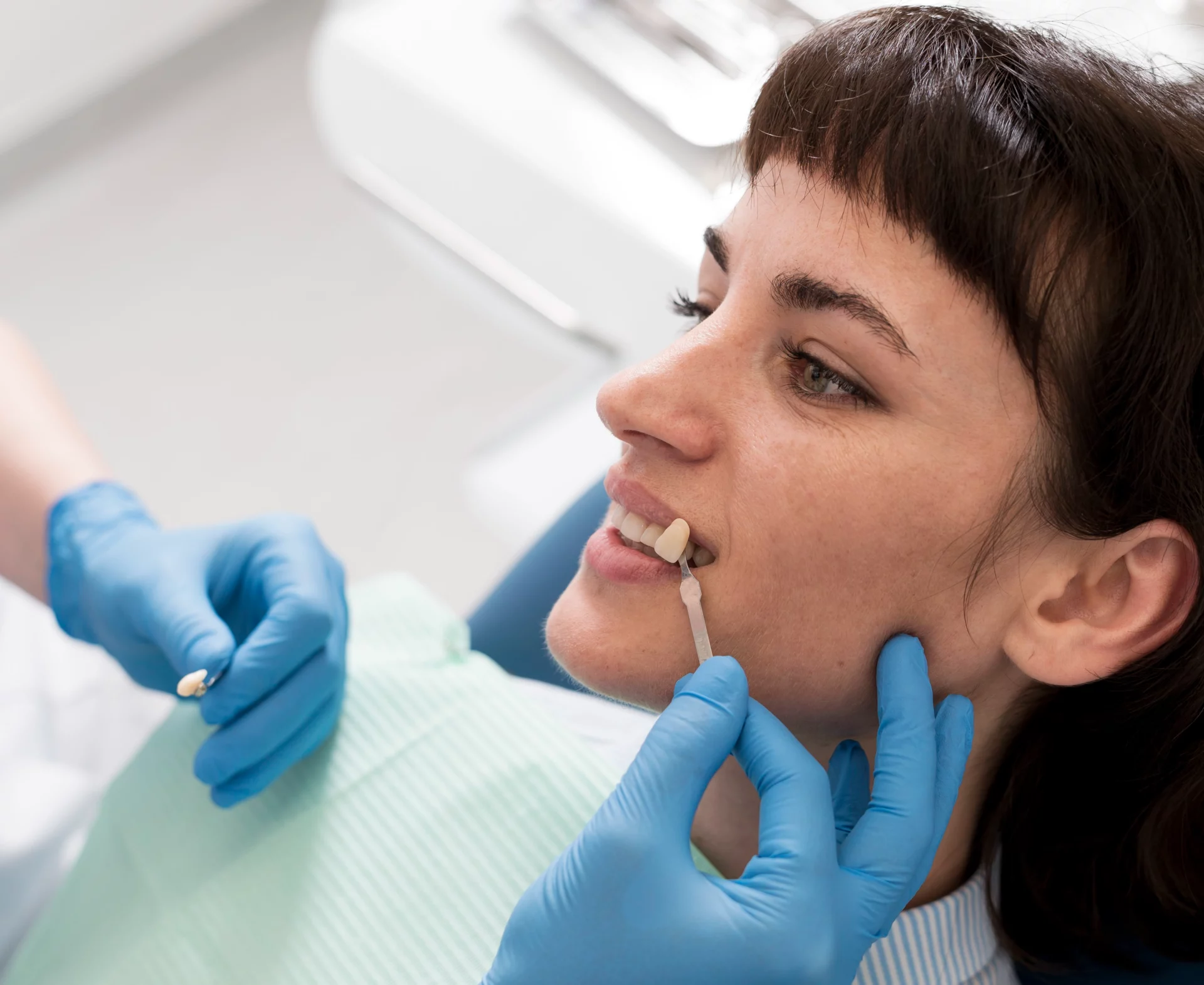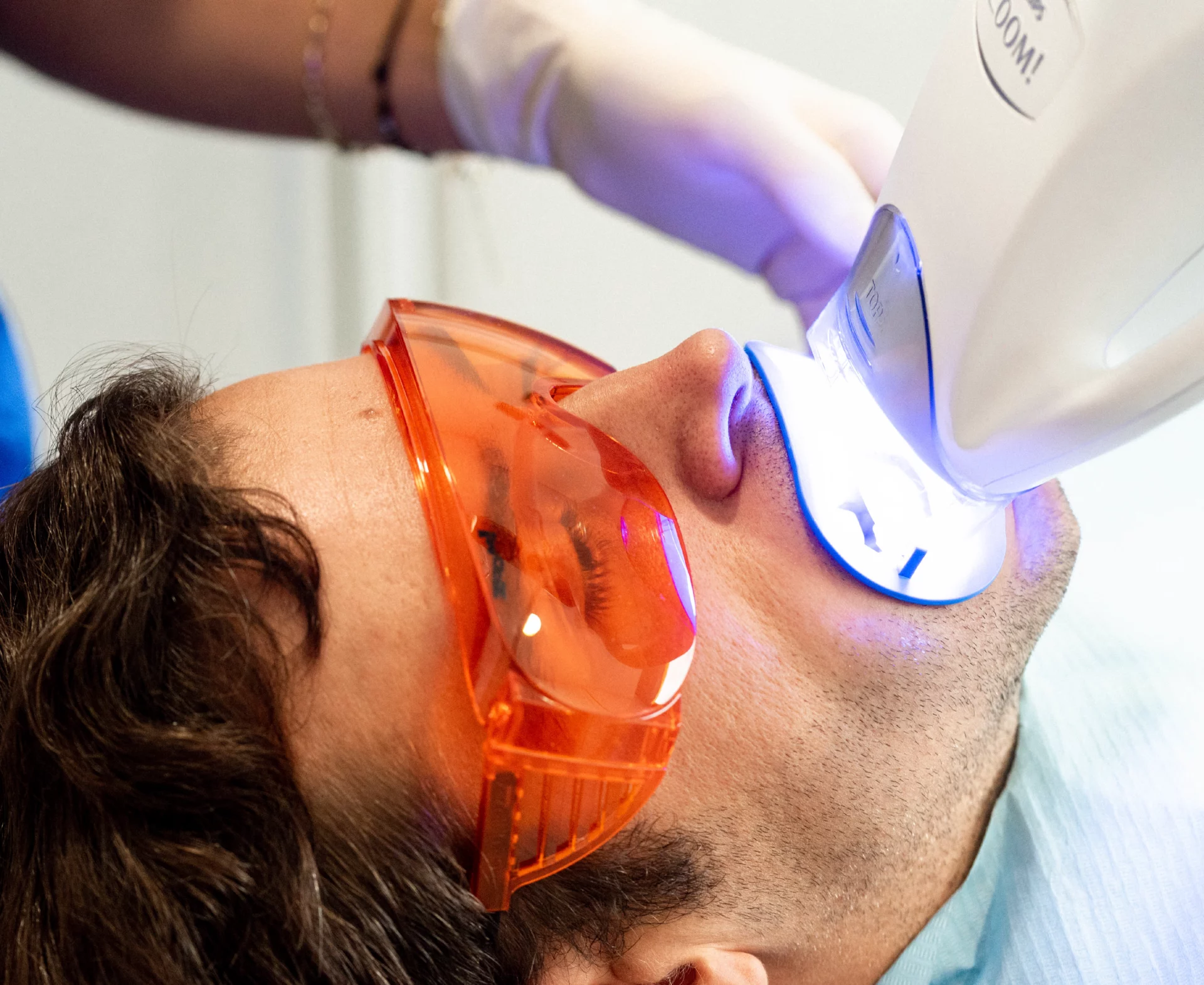Teeth whitening in Bilbao
Zabalegui Dental Clinic, specialised in cosmetic dentistry and periodontics
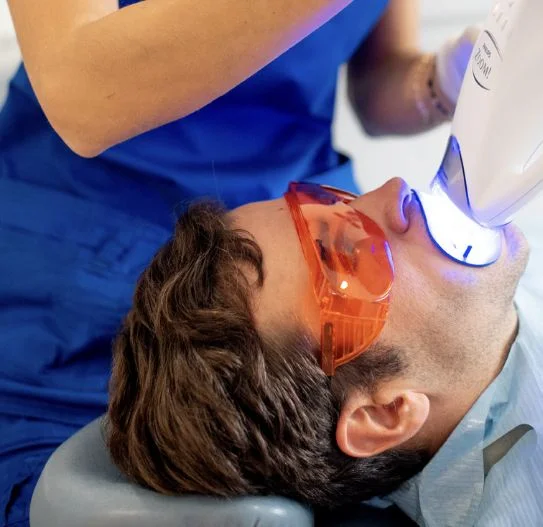
Cosmetic dentistry at Zabalegui Clinic
¿Qué es el Blanqueamiento dental?
Teeth whitening is one of the most popular cosmetic procedures today. At our dental clinic, you will be in the hands of professionals who will advise you throughout the process to achieve the smile of your dreams.
Teeth whitening is a cosmetic dentistry treatment that involves lightening the colour of the teeth, removing stains and discolouration and restoring the teeth to their natural white and shiny colour.
To perform the whitening, a gel containing hydrogen peroxide is applied to the enamel in order to whiten the inside of the tooth, and then an LED lamp is used to activate the oxygen release process.
Specialised professionals
Beneficios de realizarse un blanqueamiento en los dientes

Improves the aesthetic appearance of teeth
Teeth whitening can help improve the appearance of teeth by removing dental stains.

Easy, painless and non-invasive
Teeth whitening is a non-invasive and relatively simple treatment that does not require anaesthesia or surgery.

Fast results
The results of teeth whitening are usually visible within a short period of time, which can be motivating for many people.

Boosts confidence
Many people experience an increase in confidence after having their teeth whitened, as they like their new appearance.
causa principal para realizarse este tratamiento
Teeth darkening
Over time, it is common for teeth to darken, turning yellowish. When our patients come to our dental clinic in Bilbao for teeth whitening, they often ask us why their teeth darken over time. This process is accelerated by the consumption of certain foods and beverages such as tobacco, alcohol, soft drinks, tea and coffee. In addition, certain medications, illnesses, or exposure to chemicals can also cause staining and darkening of the teeth.
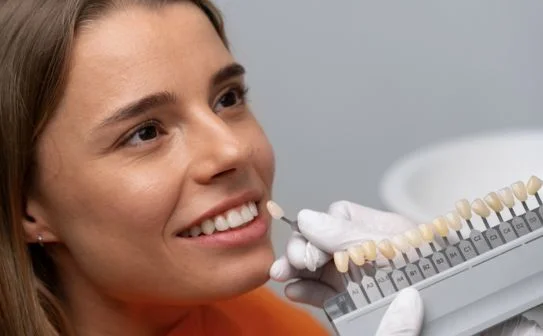
Conoce los motivos
Causes of tooth stains
There are several causes that can lead to tooth stains, and many of them are part of everyday life for most people:

Poor oral hygiene
If you do not clean your mouth properly after every meal, the pigments in food can stain your teeth, resulting in stains.

Brightly coloured foods
Some foods, such as blackberries and beetroot, contain strong pigments that can stain teeth permanently.

Drinks
Regular consumption of beverages such as coffee or tea can cause a change in tooth colour towards a more yellowish hue.

Smoking
Smoking is harmful to oral health and can cause severe and irreversible staining.

Medical treatment
Some medications can cause tooth staining. These stains may occur if taken during childhood, when permanent teeth are still developing.

Trauma
Direct blows to the teeth can cause the death of the dental nerve and, as a result, cause changes in the colour of the tooth over time.
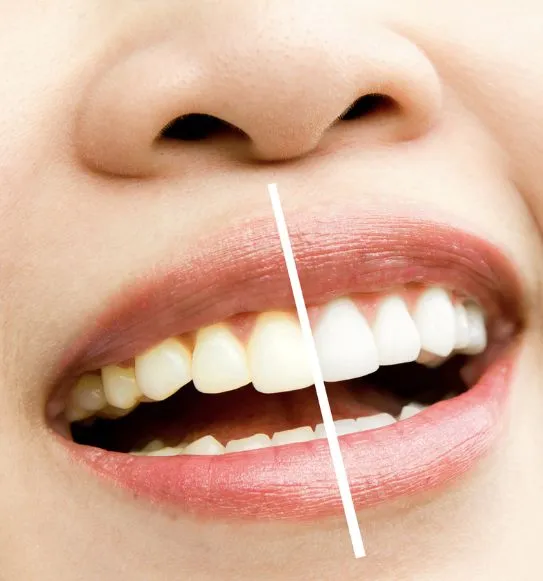
conoce los tipos
Types of dental stains
Currently, there is an accepted classification system for dental stains, which allows dentists to make a more accurate diagnosis and offer more effective solutions for patients.
Surface stains
These stains are usually light or dark brown in colour and can appear both on the surface of the teeth and between them. The main cause of this type of staining is usually poor oral hygiene and excessive consumption of foods and drinks with high pigment content. Generally, these stains do not pose a risk beyond aesthetics and can be an indicator of poor oral hygiene.
Soft deposit stains
These stains can be brown or white in colour and are caused by a build-up of bacteria. Over time, if good oral hygiene is not maintained, plaque and tartar accumulate, resulting in the appearance of these stains. It is important to address this type of staining, as it indicates the presence of significant bacterial build-up.
Intrinsic stains
These stains are white or grey in colour and usually appear as lines on the tooth enamel. They are generally caused by intrinsic factors, such as taking strong chemical medications or congenital deficiencies. These stains can be more difficult to treat, as they are found within the structure of the tooth.
More info
Frequently asked questions from our patients about teeth whitening
Is teeth whitening safe?
Yes, as long as it is done under professional supervision. Some people may experience temporary tooth sensitivity or gum irritation.
How can you prolong the results of teeth whitening?
Avoid foods and drinks that stain, quit smoking, have professional dental cleanings, and practise good oral hygiene.
What types of stains can be removed?
Teeth whitening can remove surface stains caused by food and drinks, but it may not be effective for deeper stains.
How long does teeth whitening last?
The results can last between 6 months and 2 years, depending on your hygiene habits and diet.
Are there dental conditions that cannot be treated with teeth whitening?
Teeth whitening is not suitable if you have cavities or sensitive teeth, and may not be effective on certain types of stains. We will assess this during a consultation with you.
Can I whiten my teeth at home?
Yes, there are products available for home use, but it is safer and more effective to have it done by a professional.


